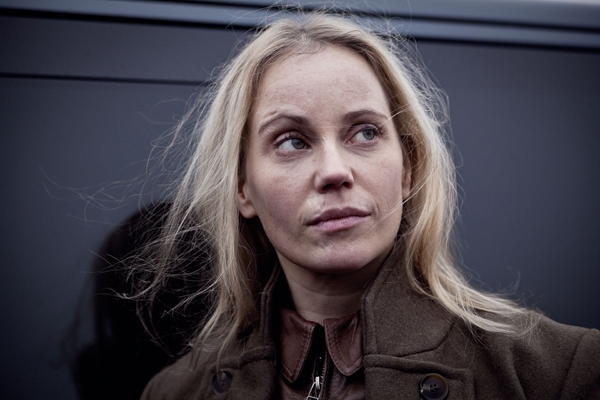I am writing shortly before this week’s vote for Mayor of London, which makes it a good time to ask whether Boris is Mr Toad. Hidden away on Sunday night, after the wondrously acted but terminally bleak Vera (Brenda Blethyn can convey more with her squeaky mou noise than some actors manage with ‘God for Harry, England and St George!’), was Perspectives: the Wind in the Willows (ITV1). It was one of those perfectly judged programmes which makes you glad that television exists. Gryff Rhys Jones, who played Mr Toad at the National, was an admirable guide, like those custodians in stately homes who adore the place and want you to share their delight.
He took the view that we all have our inner Toad: selfish, pleased with ourselves, yearning for a life of pleasure. I’ve always thought this is Boris’s appeal to the public, why — in the opinion polls, at any rate — he is far ahead of his own party and his own leader. People like Boris not in spite of his Toadish excesses — his love life, his lack of respect for his nominal superiors, and the way he seems to say whatever pops into his head. People like him because of his failings. We all have our inner Boris, we are all the junior accountant who wants to snog the prettiest clerk and tell the manager he’s a tosser.
The Wind is, of course, two books — the Elysian paradise of the riverbank, threatened only by the inhabitants of the Wild Wood, merges with the knockabout adventures of Toad. One point the programme didn’t make is that it’s a very conservative tale. Toad has every possible fault. But he is the owner of Toad Hall, so when the working-class stoats and weasels seize it, Ratty, Mole and Badger — the bourgeoisie — are obliged to take it back in order to restore proper order. The upper classes can only defeat revolution and keep their appointed status by living up to their responsibilities. (Ken Livingstone clearly represents the stoats and weasels here, though it must be said that his own inner Boris is never far from the surface.)
Rhys Jones astutely said that Kenneth Grahame never quite grew up, and it seems to be true that all the great children’s writers have a sort of secret tunnel linking their adult and childhood selves. It must have been an escape for him, stuck in an unsatisfactory marriage, with an important but boring job in the City — he was secretary of the Bank of England — and a much-loved son who was such a brat that he was actually banned from Kensington Gardens. The boy, Alastair, had been sent to Oxford by his father, who had longed to go there but wasn’t allowed — his uncle had taken the place of his dead mother and absconding alcoholic father and said they couldn’t afford it. But Alastair had terrible eyesight and wasn’t bright enough anyway. So he lay down on a railway line and waited for a train to decapitate him.
(Two years ago I was travelling back from the Hay festival when the train stopped at Oxford because of a body on the line. The guard walked down the train muttering that the same thing had happened two days before. My wife pointed out that Finals were approaching at the university. Some horrors are constant.)
The programme was full of details I didn’t know. British publishers at first rejected the book, until it was championed by Teddy Roosevelt. After its success, Grahame did little but lead a life of aimless if moneyed leisure by the Thames. But then after the miseries he had endured we can hardly blame him.
Meanwhile, a century later, we have such strange attitudes to the creatures he anthropomorphised. We spend small fortunes to banish moles; water rats we quite like, but badgers are massacred in case they carry bovine TB. For toads, we build expensive bypasses to protect their habitats. Or make them Mayor of London.
The Bridge (BBC4) will be halfway through this weekend. I was at first unexcited by The Killing, which I thought slow and more derivative of British crime drama than we Brits acknowledged. But it grew on me, partly because the characters are, on the whole, sympathetic. When Sofie Gråbøl took the part of the detective Sarah Lund, she realised, she says, that she had to play her as a man — cool, composed, dedicated to the job rather than to family. Yet we can see the vulnerability underneath. We yearn for her to succeed. By contrast Saga Norén, the Swedish cop in The Bridge, is cold and distant and ultimately unengaging. It’s no use being enigmatic if we don’t care what the enigma might be.





Comments